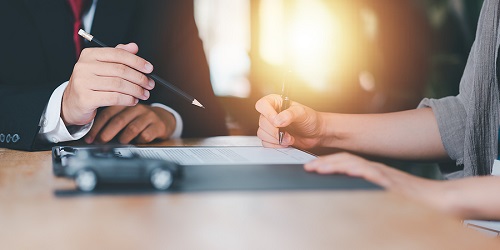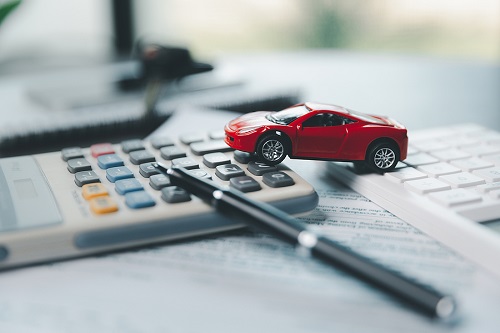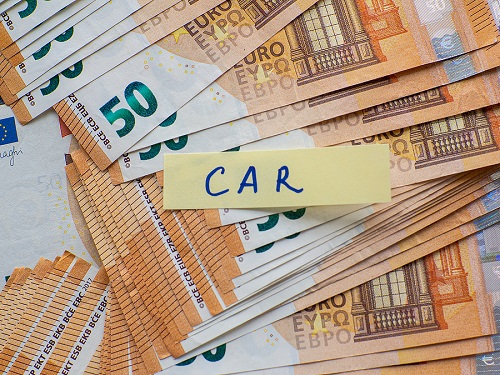With peak car-buying season rapidly approaching, along with the new 241-plate in January, it seems like a good time to consider a commonly-asked question — should I buy or lease my new car?
Leasing a car, as a private buyer, is a relatively new thing in the Irish car market. Previously, leasing was held to be the preserve of big fleet operators and company car providers. Not any more, though — the likes of LeasePlan will now offer you a privately-held lease, tailored just for you.
Of course, the fact is that many of us are actually, effectively, leasing our cars when we think that we’re buying them. The commonly-used PCP, or Personal Contract Purchase, is in many ways a lease which gives you an option to buy at the end of the agreed contract period. That’s why PCPs have stipulations about maximum mileages and keeping the car in a good condition (stipulations that many people overlook when they’re signing on the line…). The expectation is that you will return the car at the end of the three or four year agreement, and roll your ‘purchase’ over into a new car, and a new set of monthly payments.
On a deeply technical legal level, you never actually own a car that you’re paying a PCP for — you’re merely paying to be able to use it. Your name is on the logbook, but you’ll only actually fully own it if you decide to save up and pay off the ‘optional final payment’ at the end of the contract. That optional final payment cuts both ways — it helps you by guaranteeing the second hand value of the car, but it also helps the dealer by ensuring that they have a valuable asset to reclaim at the end of the contract.
Personal Lease

So, why not cut out the middle man so to speak, and go for a personal lease? Are there any benefits to leasing a car rather than buying, or PCP? Well, the primary one is value — in many cases, the monthly payments on a private lease will cost less than the monthly repayments on a PCP, or a more traditional Hire Purchase Agreement, or a personal car loan. Lease payments are also not usually subject to the whims of interest rates, which can be helpful when budgeting although the higher interest rates, and the inflation rate, that we’ve seen of late will make leasing more expensive as the lease company’s operating costs will have gone up. (It’s important to note that most PCP and HP deals are sold with a fixed interest rate, so they ought not to fluctuate in cost in line with interest rates, but obviously a higher interest rate will affect the cost of your next purchase, and higher inflation may affect the second hand value of your car, which may affect the cost of trading up).
Many lease plans can also allow you to include the cost of servicing and maintenance, and even the cost of regular tyre replacements too, although that advantage has been eroded by the inclusion of such optional extras into many PCP and HP finance packages as well.
The good thing about leasing, though, is that deposits tend to be much lower, and there’s no balloon payment to worry about. Of course, the downside is that you will never actually own the car. Some leases, but far from all, offer you the option to buy at the end of the term, but that can be an expensive choice. Leasing does insulate you somewhat from fluctuations in the second hand value of the car, which is helpful, and some leases will allow you to upgrade your car during the term of the lease — great, if you’re a bit of a fickle buyer.
PCP and Hire Purchase are a little more straightforward for many, not least because they can usually be organised and signed for in the car dealership when you’re in for your test drive. Leasing tends to be an online purchase, with few opportunities to try the car out first, so is more suited to the dedicated car shopper who’s thoroughly done their research. Cars on lease may also be more limited in their specification and colour choices, so it’s not necessarily the right fit for those who like to pick and choose their options one by one.
Car subscriptions

Equally, many car makers are gearing up to offer something similar through their dealerships — car subscriptions. These, which have been piloted from time to time already, offer you a no-deposit, single-payment for the car, tax, insurance, maintenance and everything but the petrol your pump or the electricity you charge with. Like a lease, you will never own the car, but equally a subscription can be potentially more flexible with the option to upgrade your car more regularly, or even swap out a small economy model for a larger, more comfortable car for an occasional weekend or holiday trip.
That said, the experts predict that the more traditional PCP, Hire Purchase, and personal loan options will remain more popular than leasing or subscribing for some time yet. For the moment we at Peugeot are focussing on Traditional HP finance along with PCP” said Ciaran Cusack, marketing manager for Peugeot Ireland. “Although we have no current plans to introduce them, some of the newer subscription and personal leasing finance options will suit some people, but not all. From speaking with our customers and dealers, we can see that some people like the flexibility of PCP with lower payments and access to an up-to-date model, but other people prefer the sense of ownership and opt for traditional HP or even cash. We see this trend continuing in the Irish market for some time.”
Owning your car

If you’re the more traditional kind of buyer, who likes to own their car outright and keep it for many years at a time, then the best option for you is probably a personal loan from a bank or credit union. Obviously, you’ll need to shop around to get the best interest rate, and never ever take out a loan that you can’t easily repay, but you’ll own the car from day one, and will have no issues with mileage nor condition, beyond your own personal preferences of course.
For those who like to regularly have that new numberplate on their driveway, PCP or HP are still good routes, which offer lower monthly costs than a personal loan, and which usually come with fixed interest rates, but always be aware of the optional final payment on a PCP, and remember that it’s not an outright purchase until the final cent has been paid.
Leasing is arguably for those who like a regular upgrade, and want painless ownership, but who aren’t too pushed about what car it is or what spec it’s in. That said, there’s a final wrinkle and it involves electric cars. With battery technology marching rapidly ahead, outright buying a current electric model could — emphasis on the could, we’re speculating here — leave you locked in to ownership, in three or four years’ time, of a car that technology has passed by. It’s another factor worth considering when you’re doing your homework.
So there you go! Hopefully we've given you some insight on whether it's better to buy or lease a car.
